Circular intubations as a catalyzer of systemic change at the Intensive Care Units
Sep 2021 - ongoing
By: Ville, Alicia
April 14, 2022
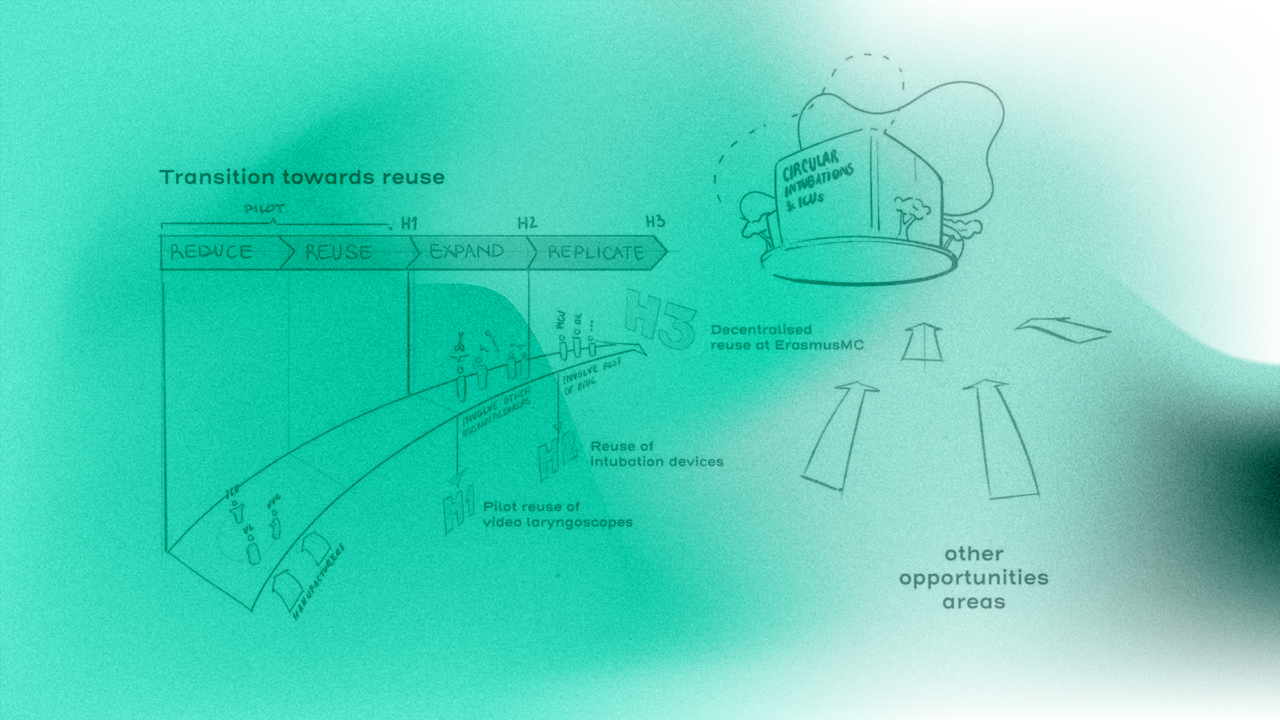
Climate change is a major crisis for healthcare
The effects of climate change like declining air quality and extreme temperatures are negatively affecting our health. The role of hospitals is to heal these ailments, yet hospitals also make extensive use of resources and create waste, injuring the environment and contributing to the climate crisis.
Quite a paradox, right? Could we design future healthcare to heal without generating waste and reduce the extraction of natural resources to make new devices? Good news – Erasmus Medical Center has just initiated its path towards circularity! During my graduation project, I had the thrilling opportunity to explore how the environmental impact of the Intensive Care Units at Erasmus Medical Center could be reduced.
Towards circular Intensive Care Units (ICUs)
Such a transition needs to start somewhere, so I focused more precisely on a common and wasteful ICU procedure, intubation. Intubation is a procedure needed when patients cannot breathe by themselves and consist in placing a tube into the patient trachea to keep the airway open and get air into their lungs.
I researched where the sustainability challenges were in the current intubation practice…in a pretty involved way! For example, I went through ICU waste receptacles to determine what condition the discarded devices were in. Nastily insightful.
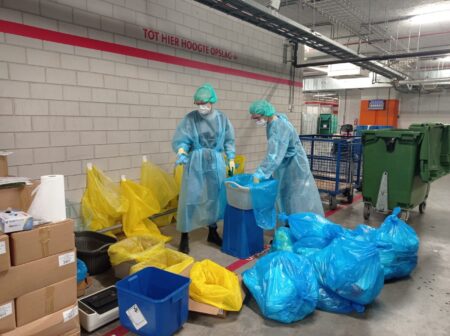
A set of opportunity areas to transition towards circular ICUs were extracted from the systemic research I conducted and summarized into a booklet [1]. These opportunities ranged from waste separation to allow recycling and remanufacturing, changes in the ICU protocols to avoid unused waste, and raising awareness of ICU workers to reduce their excessive use of disposables.
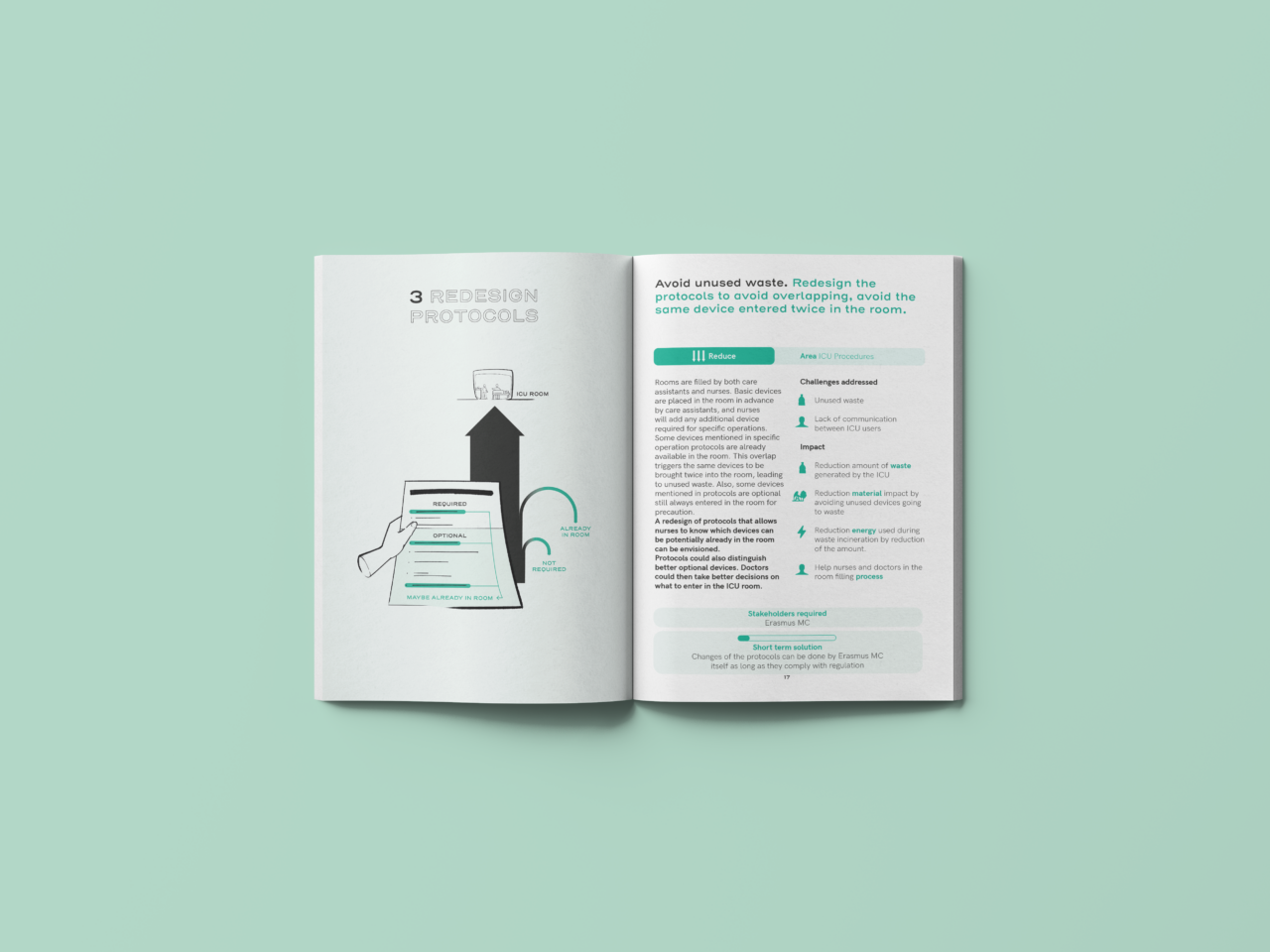
I further explored one of the opportunity areas: How could we reuse intubation devices? A pilot system [1] was envisioned, exploring ways the environmental impact could be reduced by reusing devices. Further exploration of this pilot could allow application of the reuse system to other devices or could be scaled-up for entire hospital departments.
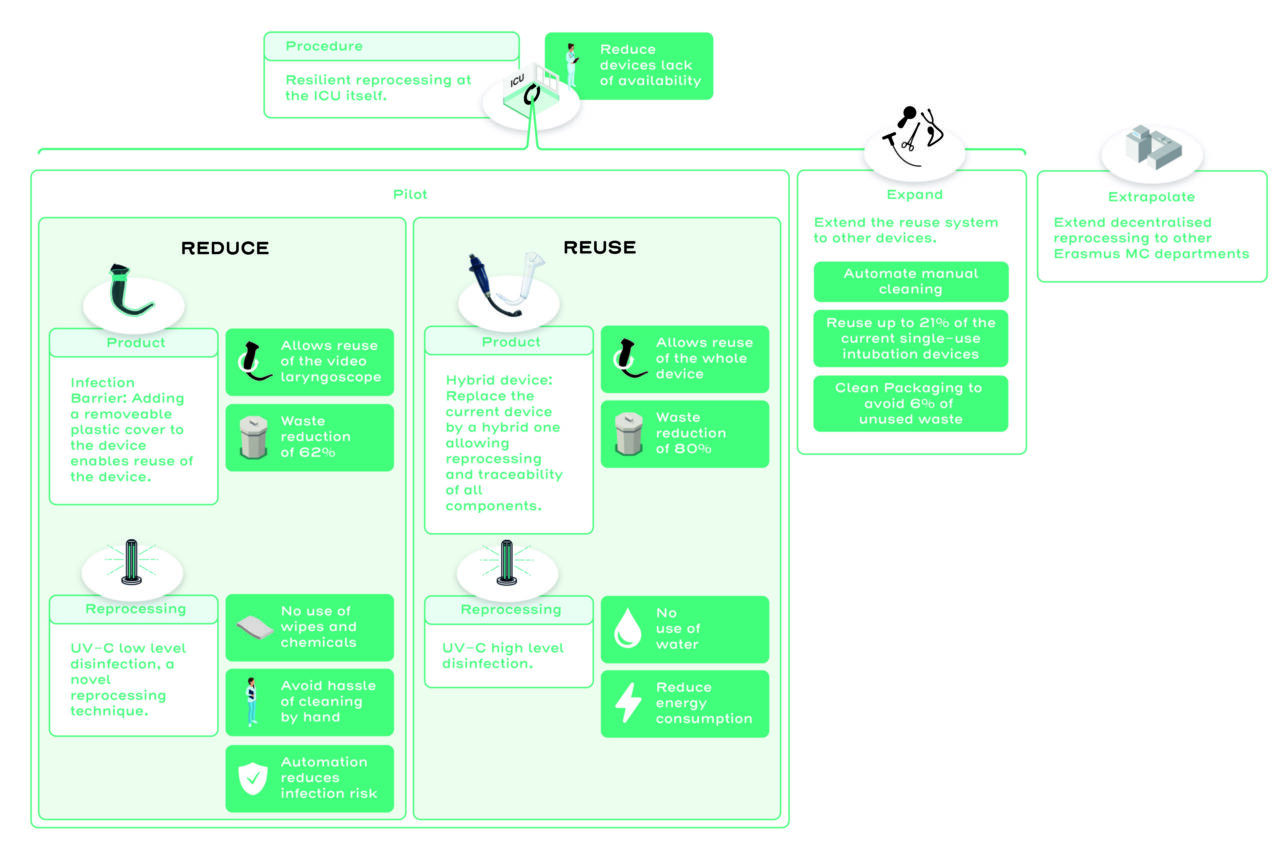
Spark a shift in values
This project aimed to provoke conversations around how healthcare could start valuing sustainability as highly as the individual patients’ well-being. I did this by creating a booklet of opportunity areas and by developing a pilot example to guide healthcare to reconsider future scenarios where medical devices could be reused.
You might wonder, how is this provocative? The concept of device reuse in the medical field is tricky. When used on patients, devices get contaminated with microorganisms. To avoid any risk of infection, reusable devices are reprocessed through an extensive process to clean and disinfect them. There is still contamination risk, which raise negative perceptions towards reusables. Disposables avoid the reprocessing step and any contamination risk.
However, reusing can be done safely and presents many valuable characteristics disposable do not! It allows hospitals to reduce other risks such as potential supply shortages and the use of limited natural resources. Decreasing production of new products and excess waste reduces the carbon intensity of hospitals, which could prevent future climate change induced illnesses.
It is therefore valuable for hospitals to consider reuse. The proposed action plan [1] aims to start a discussion around reuse, but also spark future conversations between the hospital and manufacturers to further develop the pilots towards an implementable level.
Join the transition!
This project led me to explore systemic and circular design through amazingly close collaboration with the ICU staff. I was drawn to this project by its societal impact, and I could only recommend future students to join the Convergence Program within which this graduation took place.
The Green ICU initiative, within which this graduation project took place, is an exciting environment where to graduate. After this project, additional ones have started, and it is really stimulating to me to stay in contact with future students and their ongoing projects. Building on each other graduation projects, we can get Erasmus MC closer to future circular practices that heal not only people but also the planet!
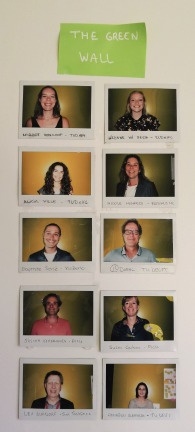
[1]You can find the booklet and action plan here
Some other interesting links:
Convergence: https://convergence.nl/
Link Collab Convergence TUDelft: https://www.tudelft.nl/2021/io/september/start-of-green-intensive-care-room-at-the-convergence-square
Interested in Learning more?
Alicia Ville
You can view Alicia’s thesis here
Supervisory Team
Dr. Conny Bakker
Dr. Jan-Carel Diehl
Graduation Committee
Baptiste Sene
Nicole Humfeld